Innovation and Sustainability in Family Farming
Modalidad: Self-study course | Desde el 17-11-21 hasta el 31-12-24
The Course “Innovation and Sustainability in Family Farming”, is part of the Regional Technical Platform for Family Farming (https://www.fao.org/americas/daf/plataforma/es/) in alliance with the Projects "Sembrando Oportunidades" (ABC, MAPA Brazil, MADR Colombia and FAO ) and the Farmers Organizations for African, Caribbean and Pacific countries - FO4ACP (FIDA, EU, OACPS, PROCASUR and FAO). This platform promotes institutional and technical innovations that strengthen family farmers and small producers around the world by mobilizing existing knowledge, experience, best practices, fostering dialogue, learning and collaboration among a diversity of partners from inside and outside of FAO.
The world food system is at a crossroads and requires a deep transformation at multiple levels due to increasing demographic pressure, climate change, growing competition for natural resources, the loss of biodiversity and malnutrition problems. Faced with this situation, the World Food Safety Council has indicated the importance of agroecology and other innovative approaches, which occupy an increasingly prominent position in discussions on sustainable development considering the need to link environmental sustainability and social innovation, production and consumption, global concerns and local dynamics.
Various studies and years of experience have shown that family farming has implemented innovative solutions to address sustainability challenges in their local food systems. However, since many of these innovations remain small in scope, it is necessary to share these experiences horizontally for scaling up and expanding their impact through adaptation and replication. The generation of multi-actor territorial innovation systems and technical assistance and rural extension services play a key role in facilitating the generation and propagation of innovative solutions for the sustainability of food systems.
In this course, various experiences from Brazil, Colombia and other countries in the region are presented, in which initiatives and tools have been identified that can serve as inspiration and a reference to make decisive progress in strengthening family farming as an agent of transformation.
* Remember to write your name correctly since it is the same that will appear in the certificate and you will not be able to modify it later.
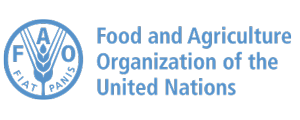 |
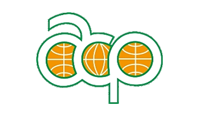 |
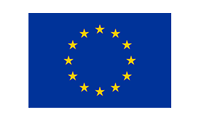 |
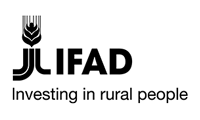 |
 |
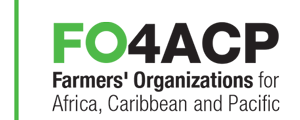 |
Course description:
- Name:
-
Innovation and sustainability in family farming
- Type of course:
-
Self-study.
- Total duration:
-
20 chronological hours
- Course modality and methodology:
-
This is a self-study course with the participant responsible for his or her own learning. It is structured into four units that are to be completed sequentially, meaning that once one unit has been completed, it is possible to access the next.
Throughout the course, the participant will have the opportunity to study new concepts, learn procedures and apply criteria. The themes of the course are related to different principles and experiences that show how family farming has implemented innovative solutions to transform food systems toward sustainability.
The methodology considers the systematic application of different learning tools and self-evaluation exercises for each unit, which will assist comprehension of the contents. The revision of the contents of this course requires an approximate commitment of 20 chronological hours, which may vary depending on the references used, and it is recommended to plan on one-hour sessions three times a week.
- Course start date:
-
17 November 2021
- Intended audience:
-
- Public managers and professionals who work in the implementation of programmes and actions linked to rural development mechanisms and programmes.
- Representatives of Family Farming organizations.
- Professionals who participate in initiatives within the framework of South-South cooperation in its different modalities.
- Leaders of civil society, representatives of the private sector and academia, and students who have an interest in the course's agenda.
- Technicians and coordinators participating in projects managed by FAO in the region.
- Application/registration:
-
You can register by clicking on the button in the column to the right of this page.
Before registering, please read the complete course description to identify the objectives of the course and the profile of the intended audience.
- General aim:
-
Present different principles and experiences that show how family farming has implemented innovative solutions to transform food systems towards sustainability.
- Specific objectives:
-
- Explain the contribution of different innovative approaches in Family Farming in the development of sustainable food systems.
- Identify Family Farming initiatives and tools that serve to transform food systems.
- Link the principles and key characteristics of innovation to specific experiences in the territories.
- Contents:
-
- Innovative approaches for sustainability
- Valuation mechanisms
- Innovation experiences in the territories
- Course grading system:
-
To pass the course, a final evaluation must be completed at the end of the learning process. The minimum passing grade is 70% and an indefinite number of attempts is permitted.
The evaluation will be graded according to the following scale:
- Distinction: 90 to 100 points
- Merit: 80 to 89 points
- Pass: 70 to 79 points
- Fail: 0 to 69 points
- Hardware requirements:
-
For the correct completion of the course, the participant must have the following minimum technical specifications:
- PC with Internet connection.
- The quality and speed of browsing and downloading documents will depend exclusively on the connection bandwidth.
- RAM memory greater than 1GB.
- Free hard disk space greater than 500 MB.
- 600 MHz processor or higher.
- Software requirements:
-
- Latest version of Google Chrome, Mozilla Firefox, Safari or Opera, with JavaScript enabled..
- Screen resolution of at least 1024x768 pixels (width by height).
- PDF document reader.
- Additional requirements:
-
- Microsoft Office skills (Word, PowerPoint, Excel), e-mail management and Internet browsing.
- Availability of at least 8 to 10 hours per week for reading and carrying out course activities. Participants may choose their own course schedule and enter the classroom at any time, but should consider entering at least three times a week to complete the required readings and activities.
NOTE: In the case of the beneficiary artisans of the +Algodón project and its partner institutions, they will have the possibility of accessing support for the registration and development of the course in agreement with national counterparts that will facilitate Internet access and physical spaces. This possibility will depend on the counterparts in each country.
- Language:
-
The course will be taught entirely in Spanish.
- Course code:
-
ISAFEN202111
- Certification:
-
Once the course is passed, participants will be able to automatically download the certificate granted by the FAO RLC on the platform where the course is hosted.
Please remember to save your certificate, as it will not be available for download again once the course has closed.
- Better to which it belongs:
-
BP4: Small scale producers equitable access to resources
- Related FAO Regional Initiative:
-
RI2: Family farming and inclusive food systems for sustainable rural development.
- Integrated clusters:
-
8 (Family Farming)
- Supervising officer:
-
Luiz Beduschi
- Technical team:
-
Raúl Contreras Devia, Pedro Boareto, Marcos Rodriguez Fazzone, Camilo Ardila Galvis
- Contact:
-
If you have any additional questions, please contact [email protected]

